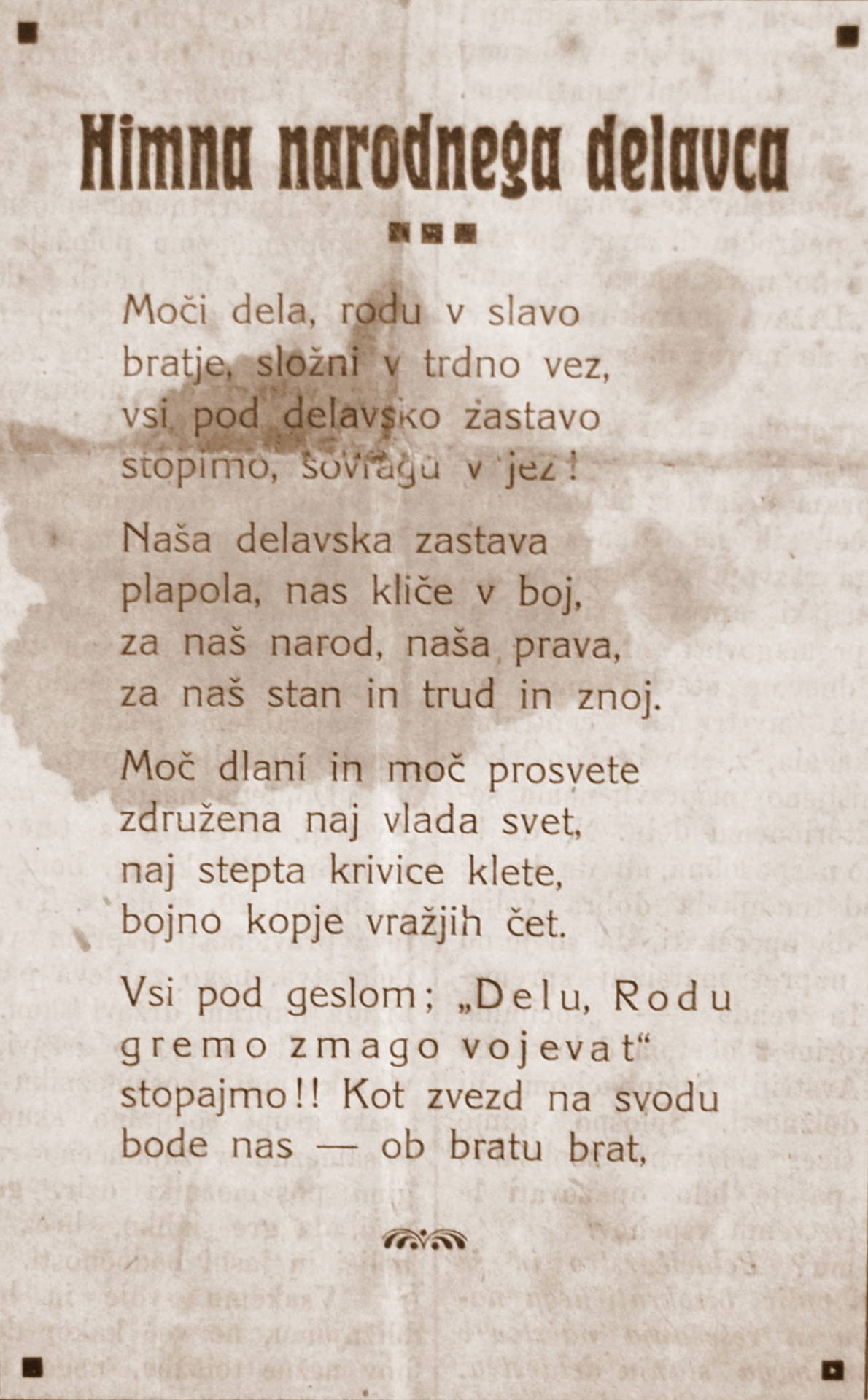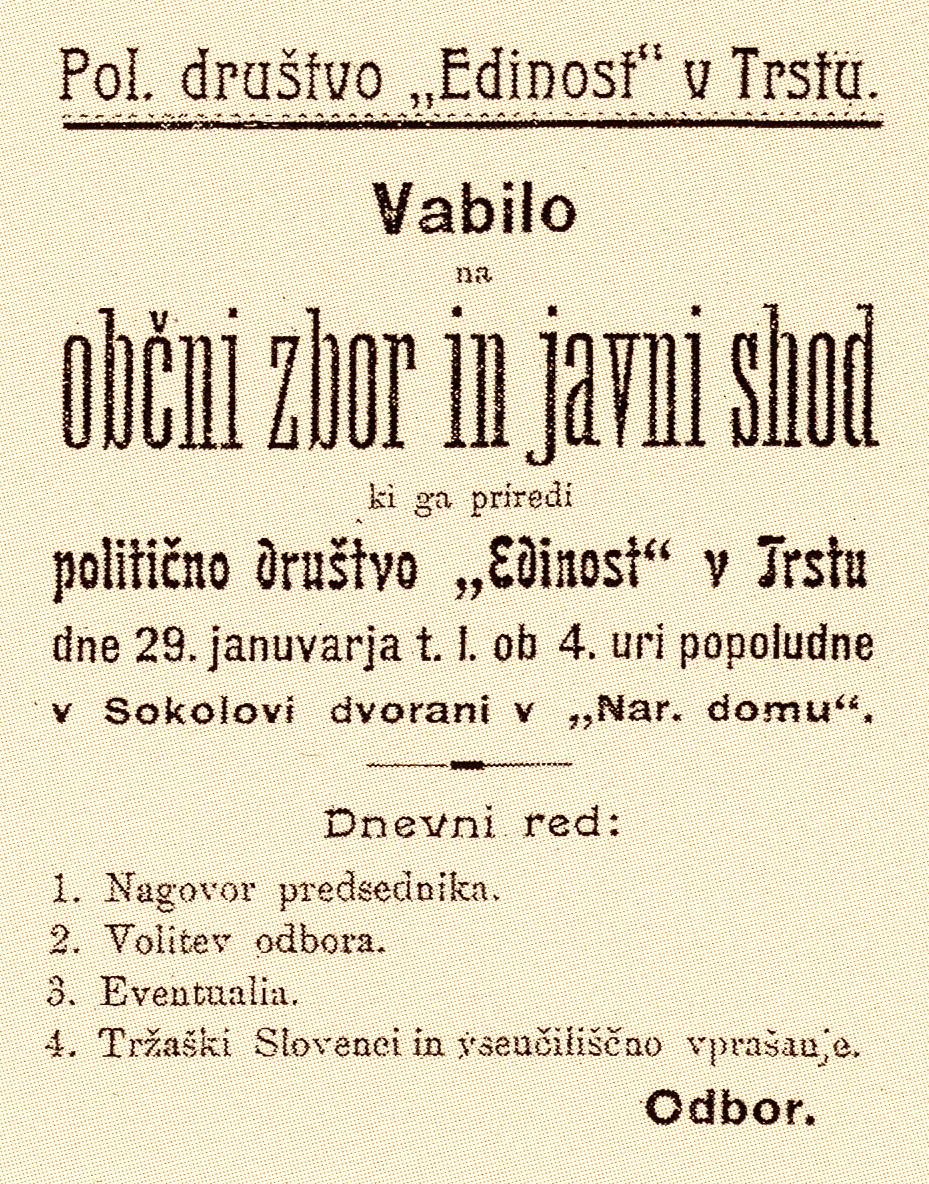In 1867 Austria gained a new constitution and a series of liberal laws, among which laws governing freedom of assembly and freedom of association were the most important for Slovenes in the Empire. Out of this came the idea of organising assemblies or rallies called tabors, after the Czech model. These were mass gatherings at which political, social and national demands were voiced. The first tabor in Slovenia took place in 1868, while tabors were held in southern Primorska (then part of the Austrian Küstenland) in Kalc near Knežak (1869), Kubed (1870), San Dorligo della Valle/Dolina (1878) and Brezovica near Materija (1883). All the tabors were imbued with the spirit of the national programme formulated in 1848. The idea of a United Slovenia and the equality of nations reached its peak in this period and brought together people of all classes.
Important work in the field of the national awakening was also carried out by political associations, which called for national rights, the establishment of Slovene schools, economic independence and linguistic equality. The roots of the movement dated back to 1848, when freedom of association and assembly were first permitted, while after 1870 new national or political associations began to emerge. Their predecessors were the reading societies: nominally cultural associations whose initial activities, however, were clearly political.
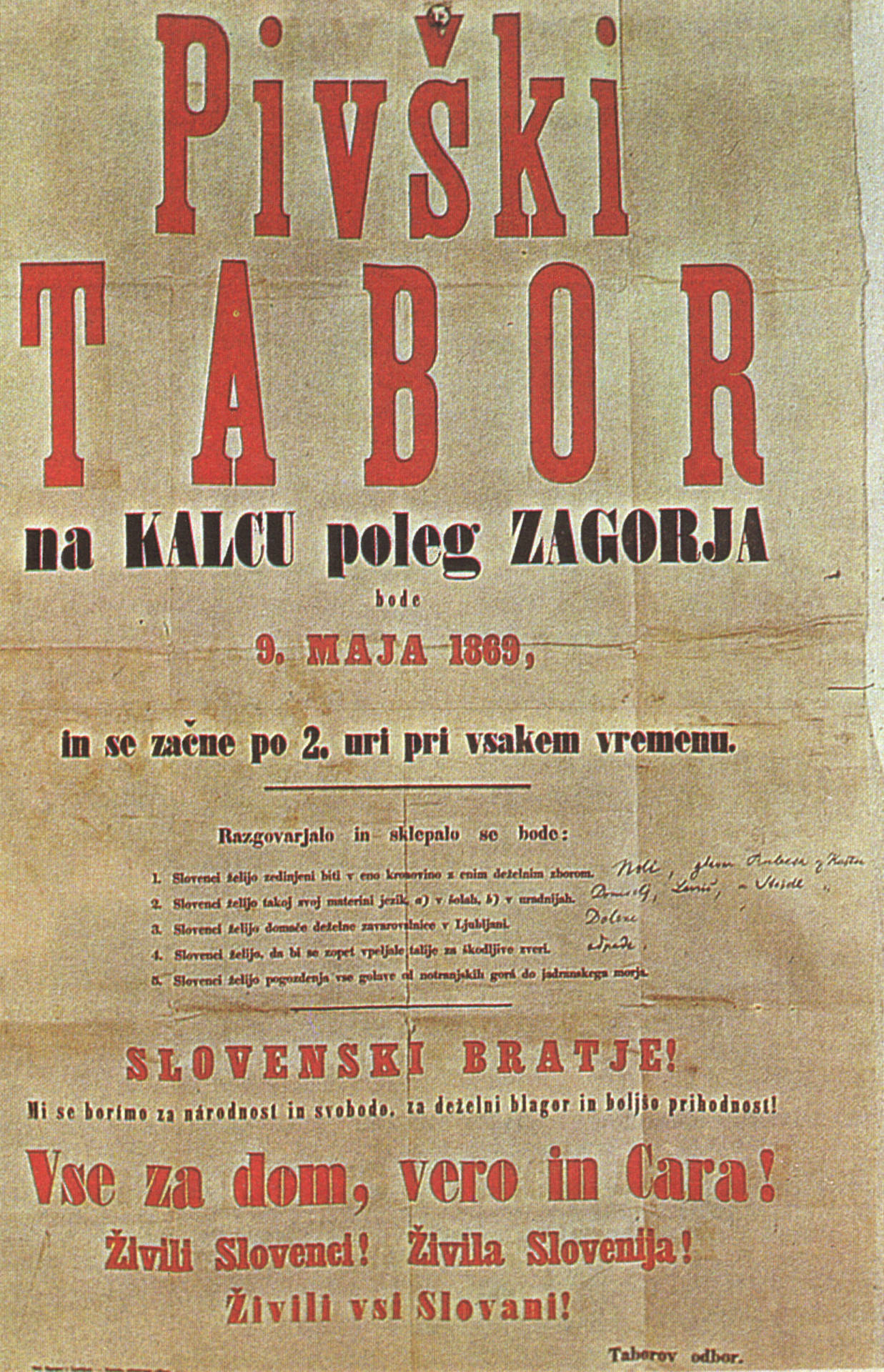 The Pivka tabor took place on 9 May 1869 at Kalc Castle, owned by the family of composer Miroslav Vilhar. It was attended by between eight and nine thousand people.
The Pivka tabor took place on 9 May 1869 at Kalc Castle, owned by the family of composer Miroslav Vilhar. It was attended by between eight and nine thousand people.
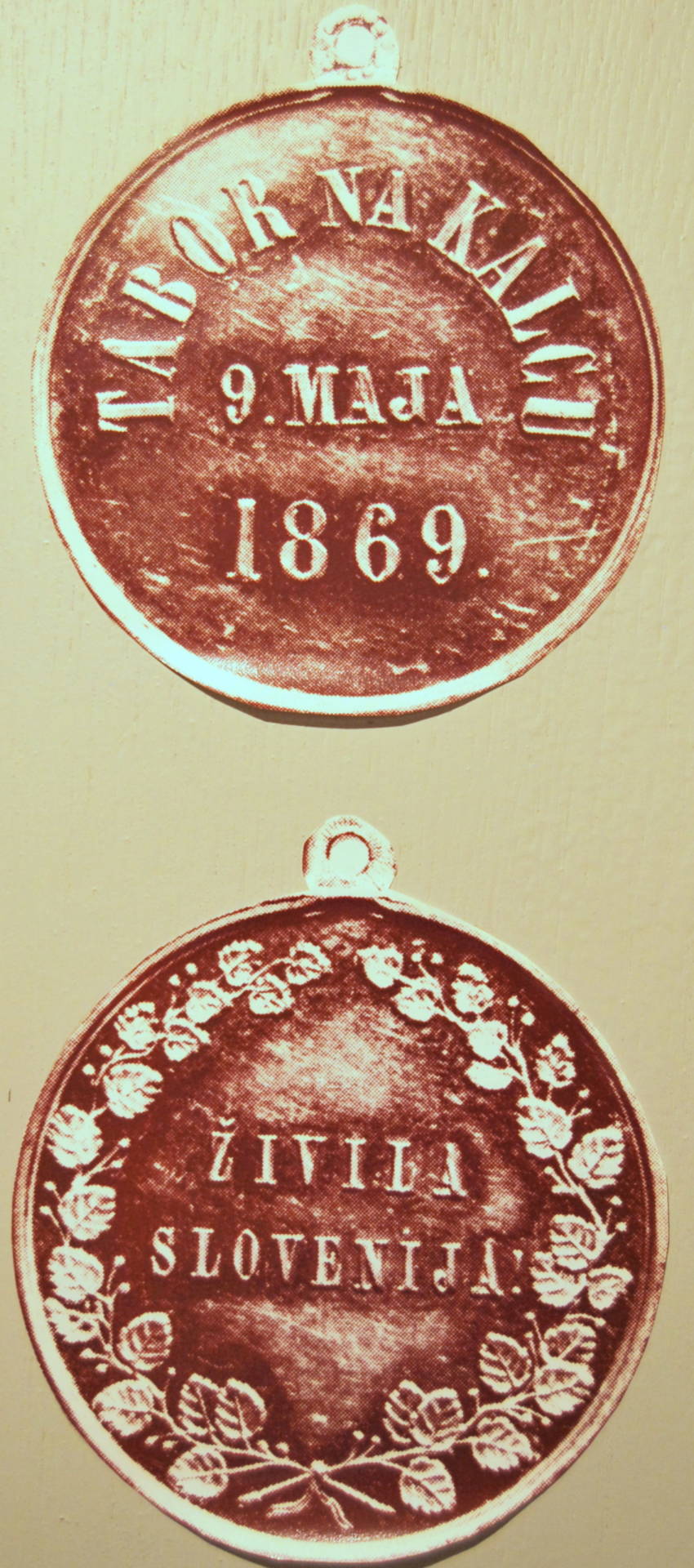 The Pivka tabor took place on 9 May 1869 at Kalc Castle, owned by the family of composer Miroslav Vilhar. It was attended by between eight and nine thousand people.
The Pivka tabor took place on 9 May 1869 at Kalc Castle, owned by the family of composer Miroslav Vilhar. It was attended by between eight and nine thousand people.
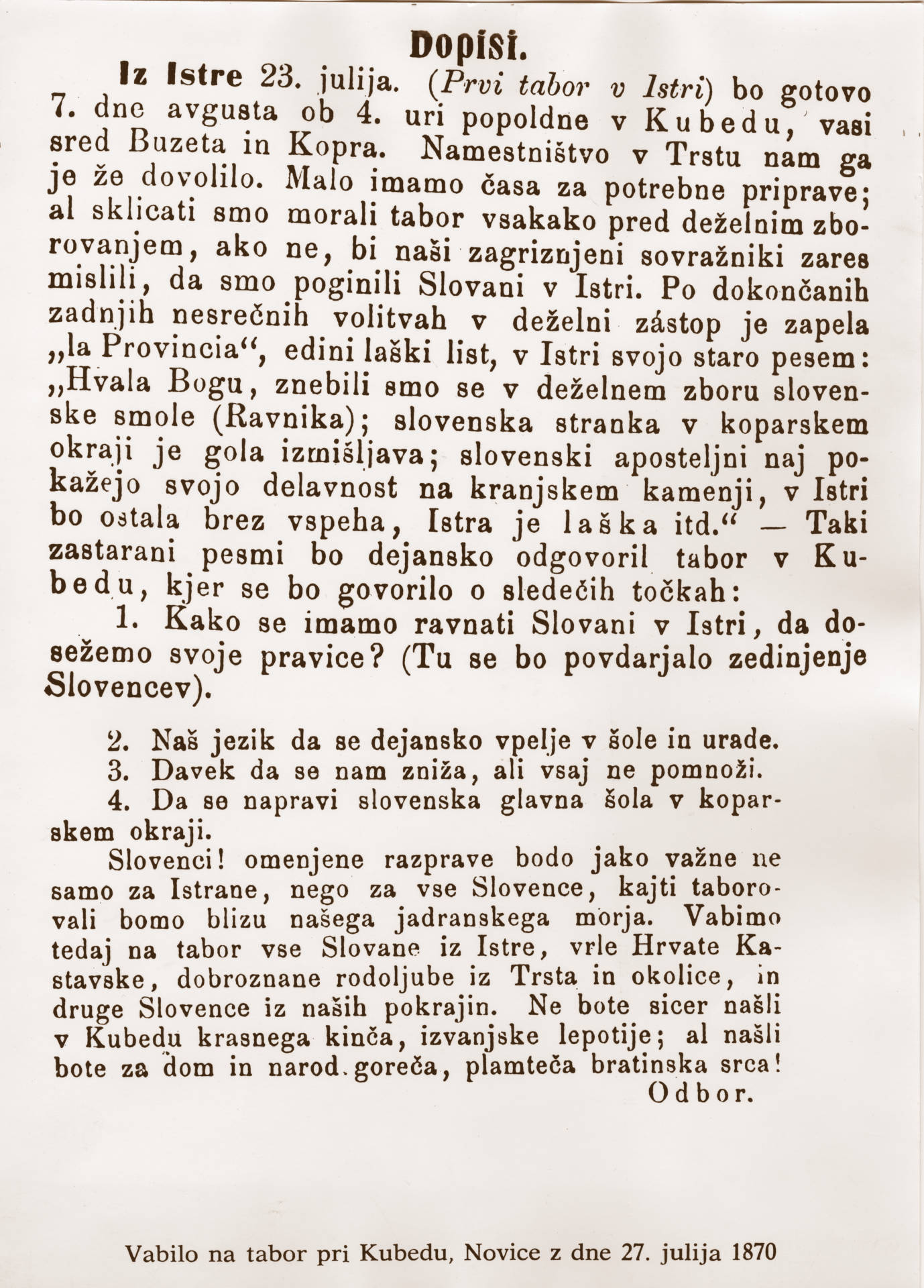 The tabor in Kubed (7 August 1870) woke Istrian Slovenes from their political lethargy. It was also attended by Istrian Croats, bringing the total attendance to between four and five thousand.
The tabor in Kubed (7 August 1870) woke Istrian Slovenes from their political lethargy. It was also attended by Istrian Croats, bringing the total attendance to between four and five thousand.
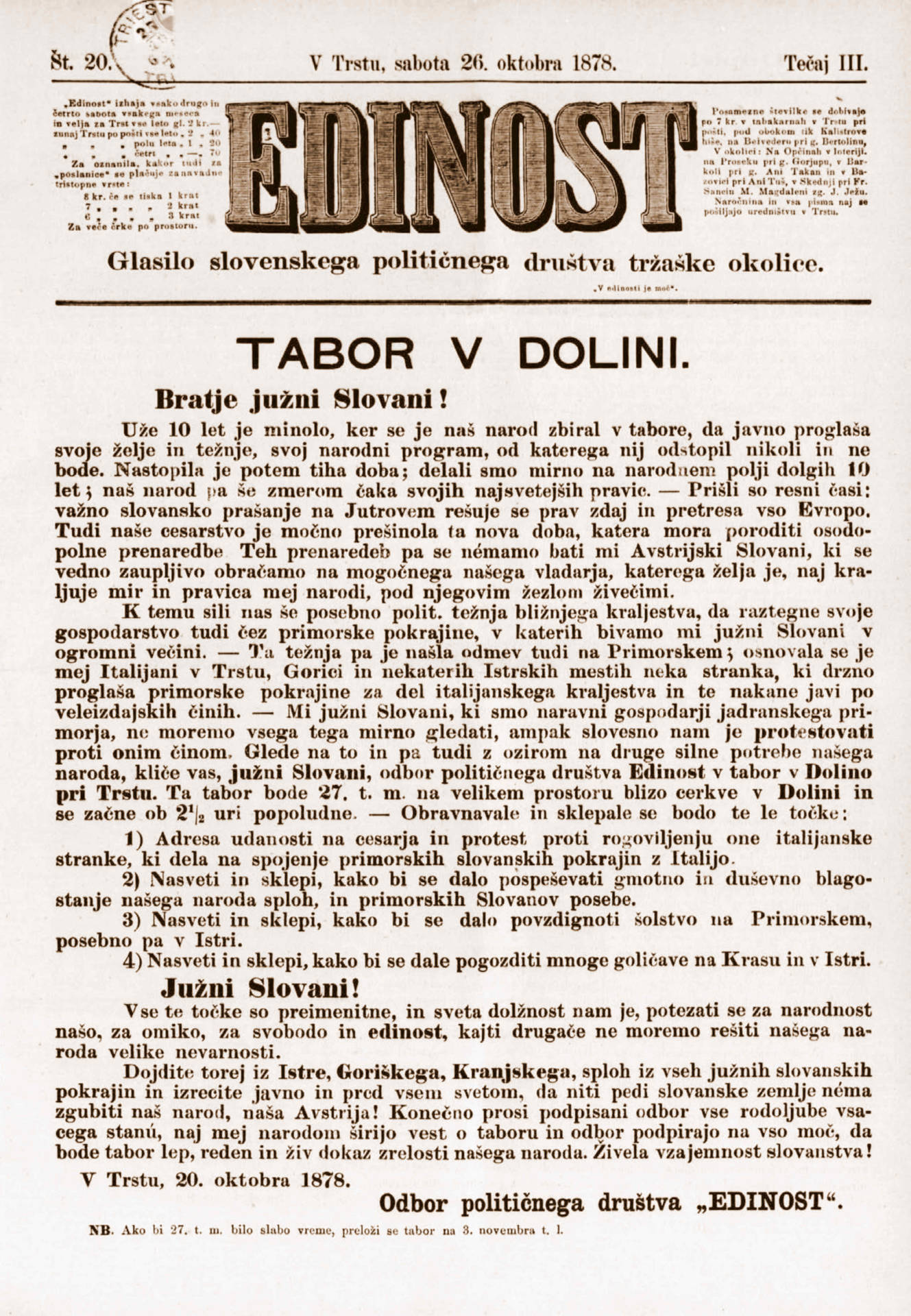 The tabors in San Dorligo della Valle/Dolina and Brezovica (near Materija) were organised and promoted by the political association Edinost.
The tabors in San Dorligo della Valle/Dolina and Brezovica (near Materija) were organised and promoted by the political association Edinost.
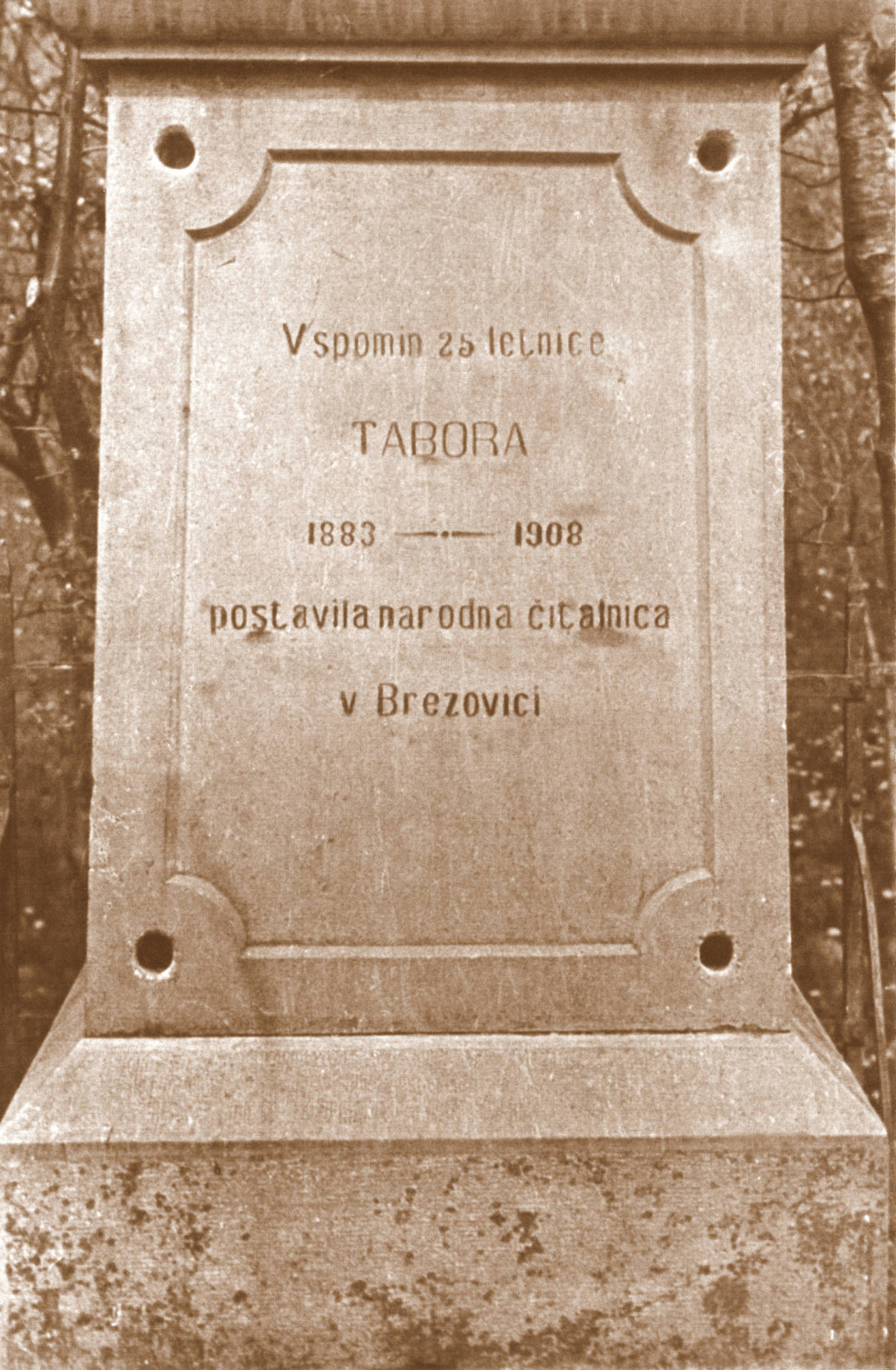 The tabors in San Dorligo della Valle/Dolina and Brezovica (near Materija) were organised and promoted by the political association Edinost.
The tabors in San Dorligo della Valle/Dolina and Brezovica (near Materija) were organised and promoted by the political association Edinost.
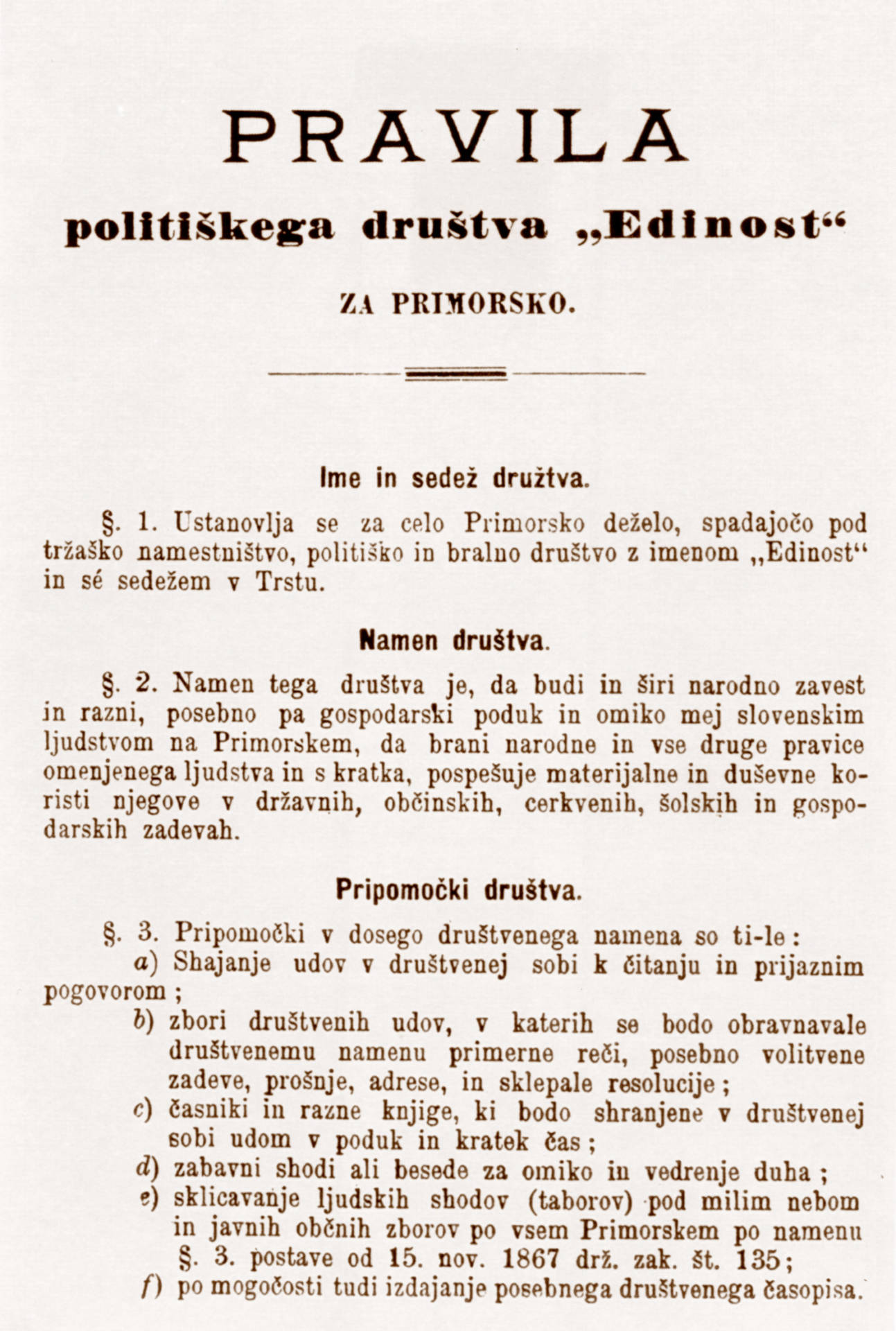 the political association Edinost (“Unity”) (1874–1928) played an important role in the national awakening of Slovenes in and around Trieste and in Istria. Its founder and long-serving president was Ivan Nabergoj. Two years after its foundation, it began publishing the newspaper of the same name.
the political association Edinost (“Unity”) (1874–1928) played an important role in the national awakening of Slovenes in and around Trieste and in Istria. Its founder and long-serving president was Ivan Nabergoj. Two years after its foundation, it began publishing the newspaper of the same name.
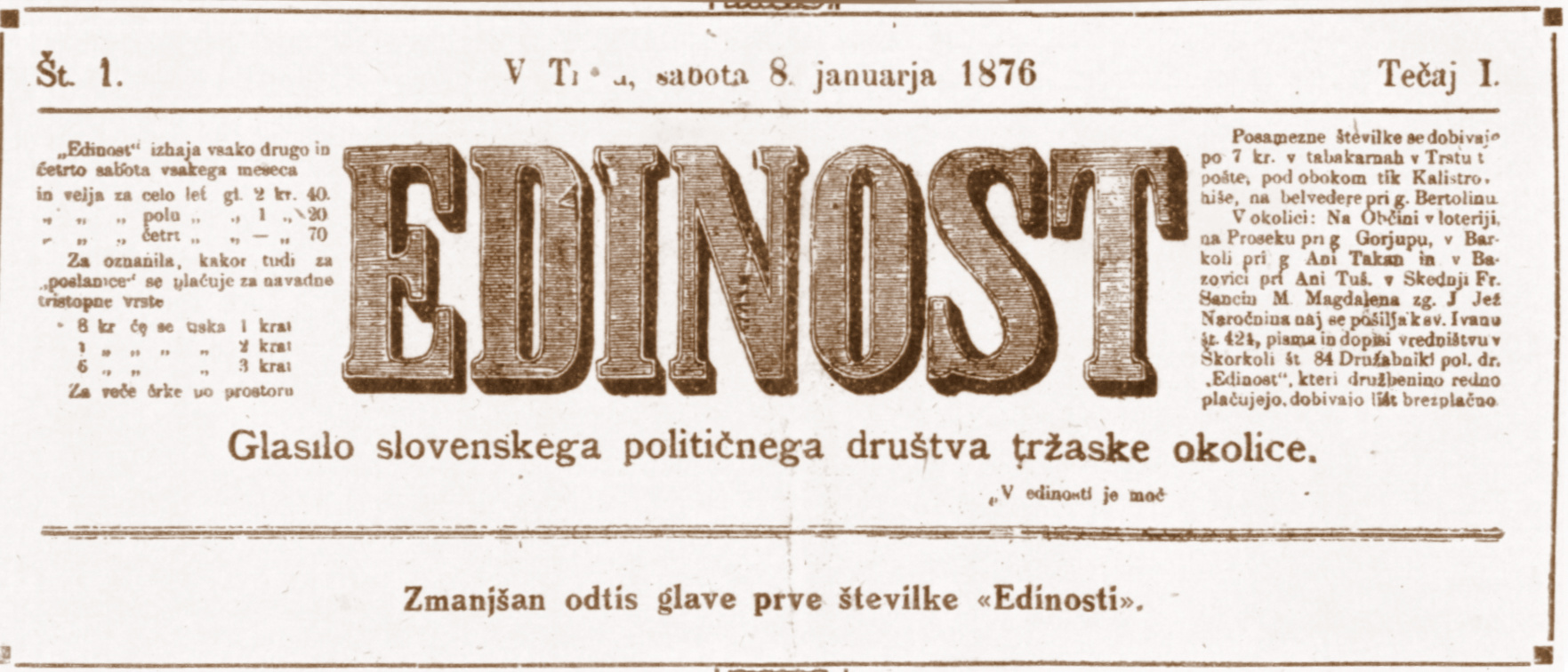 the political association Edinost (“Unity”) (1874–1928) played an important role in the national awakening of Slovenes in and around Trieste and in Istria. Its founder and long-serving president was Ivan Nabergoj. Two years after its foundation, it began publishing the newspaper of the same name.
the political association Edinost (“Unity”) (1874–1928) played an important role in the national awakening of Slovenes in and around Trieste and in Istria. Its founder and long-serving president was Ivan Nabergoj. Two years after its foundation, it began publishing the newspaper of the same name.
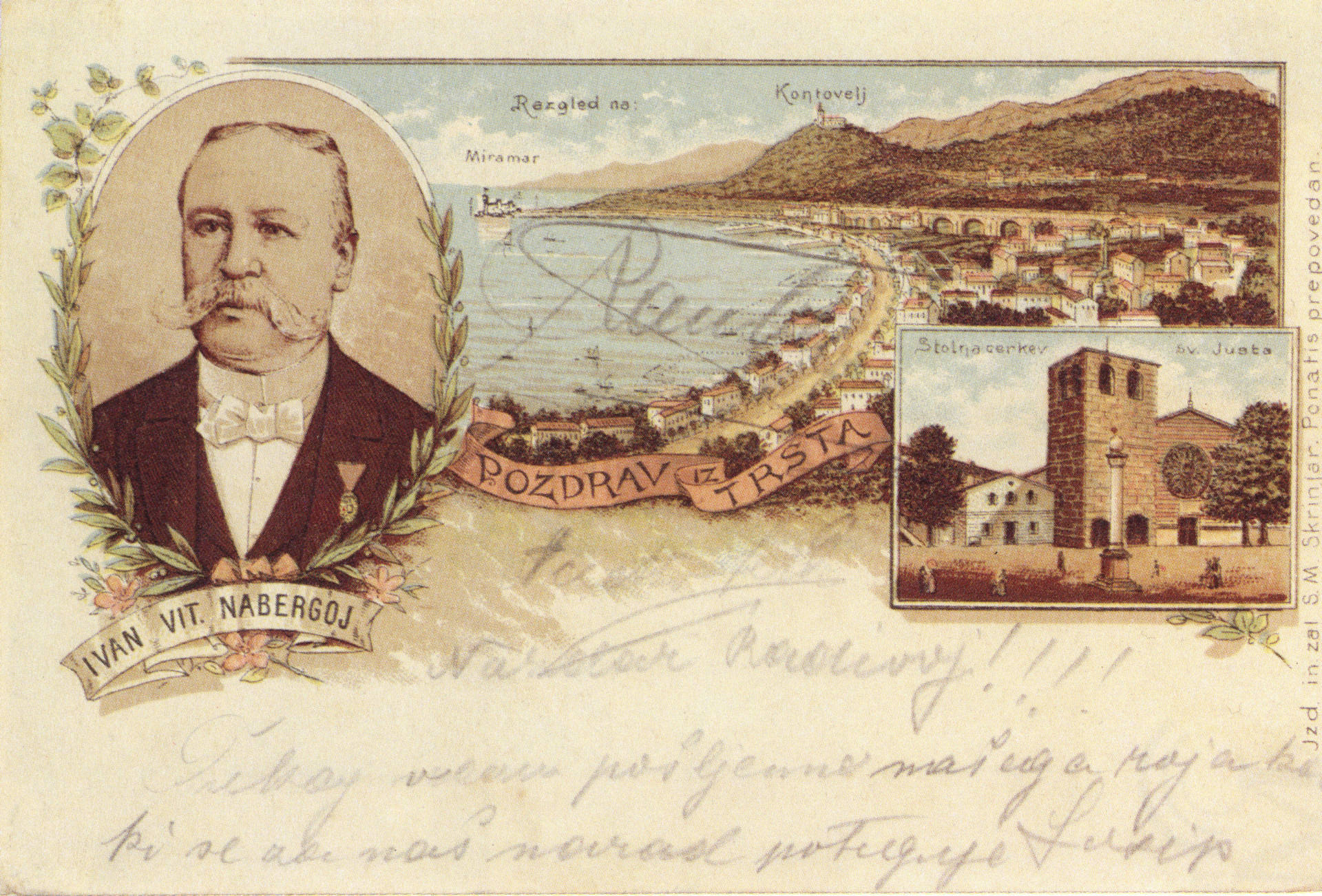 the political association Edinost (“Unity”) (1874–1928) played an important role in the national awakening of Slovenes in and around Trieste and in Istria. Its founder and long-serving president was Ivan Nabergoj. Two years after its foundation, it began publishing the newspaper of the same name.
the political association Edinost (“Unity”) (1874–1928) played an important role in the national awakening of Slovenes in and around Trieste and in Istria. Its founder and long-serving president was Ivan Nabergoj. Two years after its foundation, it began publishing the newspaper of the same name.
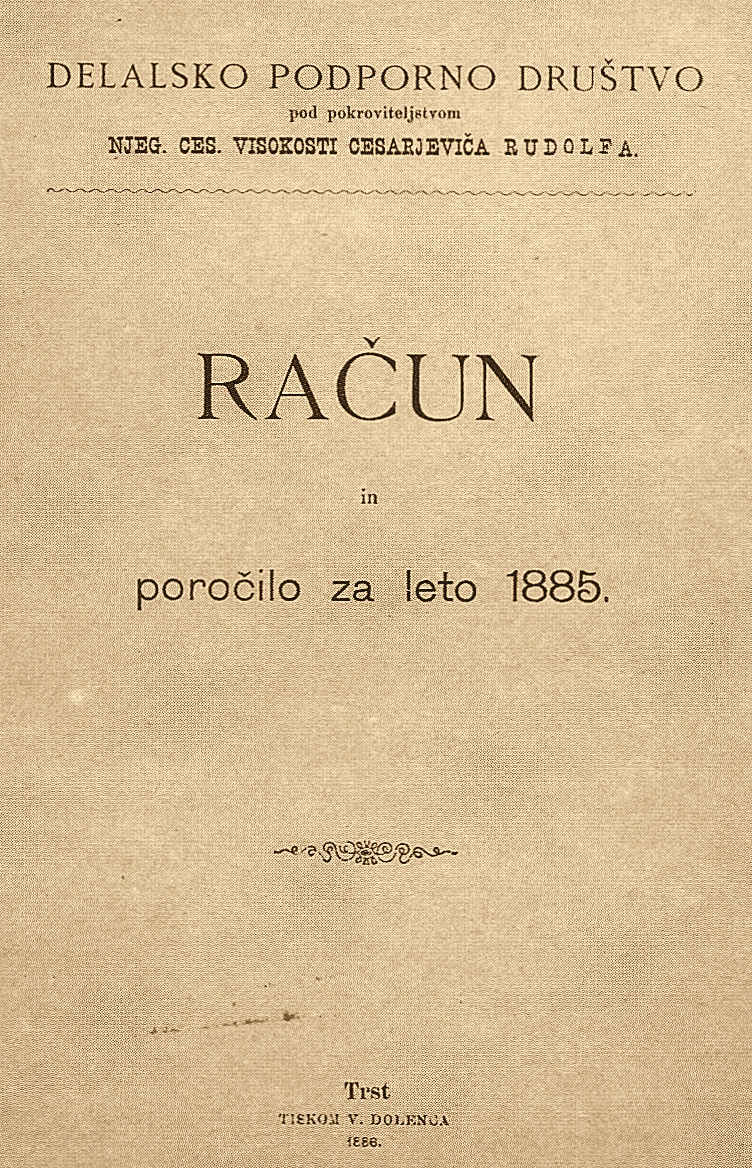 The Workers’ Mutual Aid Society (originally the Slavonic Mutual Aid Society) was founded in 1879.
The Workers’ Mutual Aid Society (originally the Slavonic Mutual Aid Society) was founded in 1879.
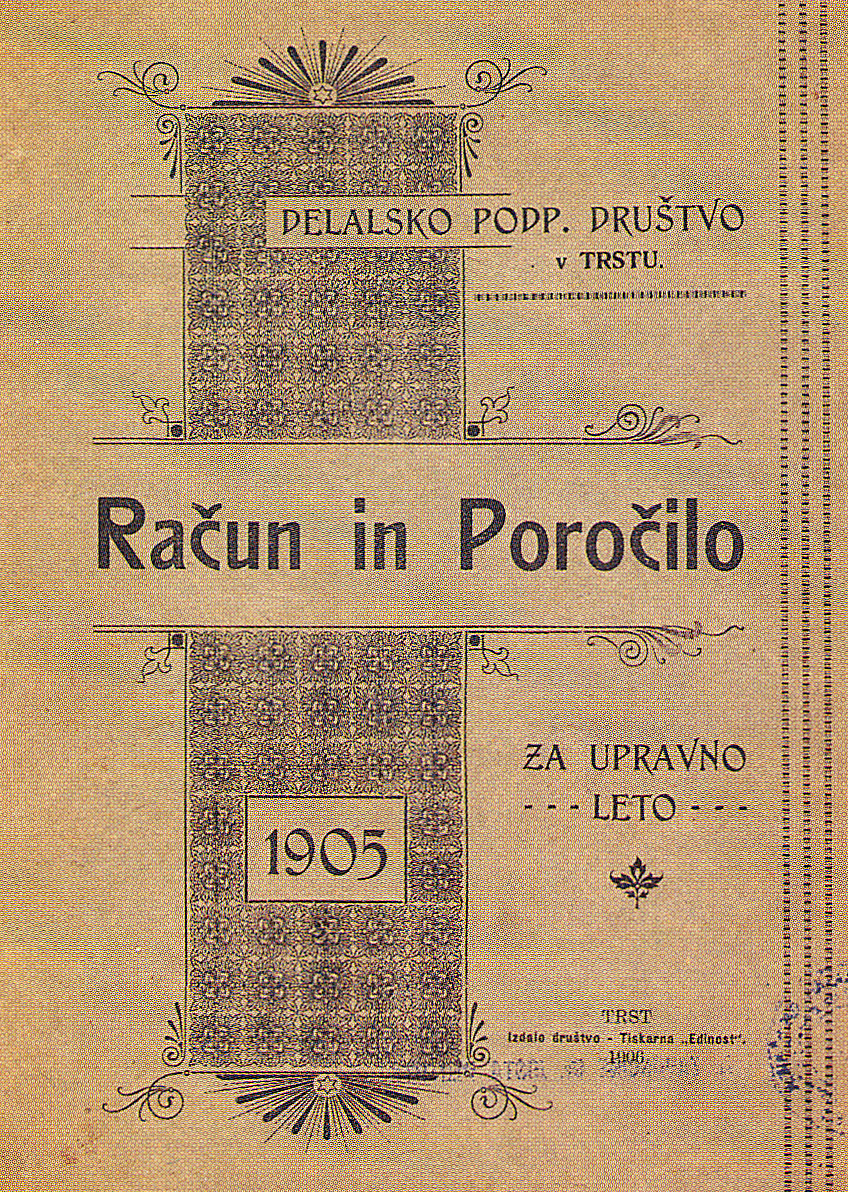 The Workers’ Mutual Aid Society (originally the Slavonic Mutual Aid Society) was founded in 1879.
The Workers’ Mutual Aid Society (originally the Slavonic Mutual Aid Society) was founded in 1879.
 The Political Association for Croats and Slovenes in Istria was founded in Pazin (Croatia) in 1902, with the aim of awakening national awareness and defending national rights in all areas of public life. The newspaper Naša sloga became its official organ.
The Political Association for Croats and Slovenes in Istria was founded in Pazin (Croatia) in 1902, with the aim of awakening national awareness and defending national rights in all areas of public life. The newspaper Naša sloga became its official organ.
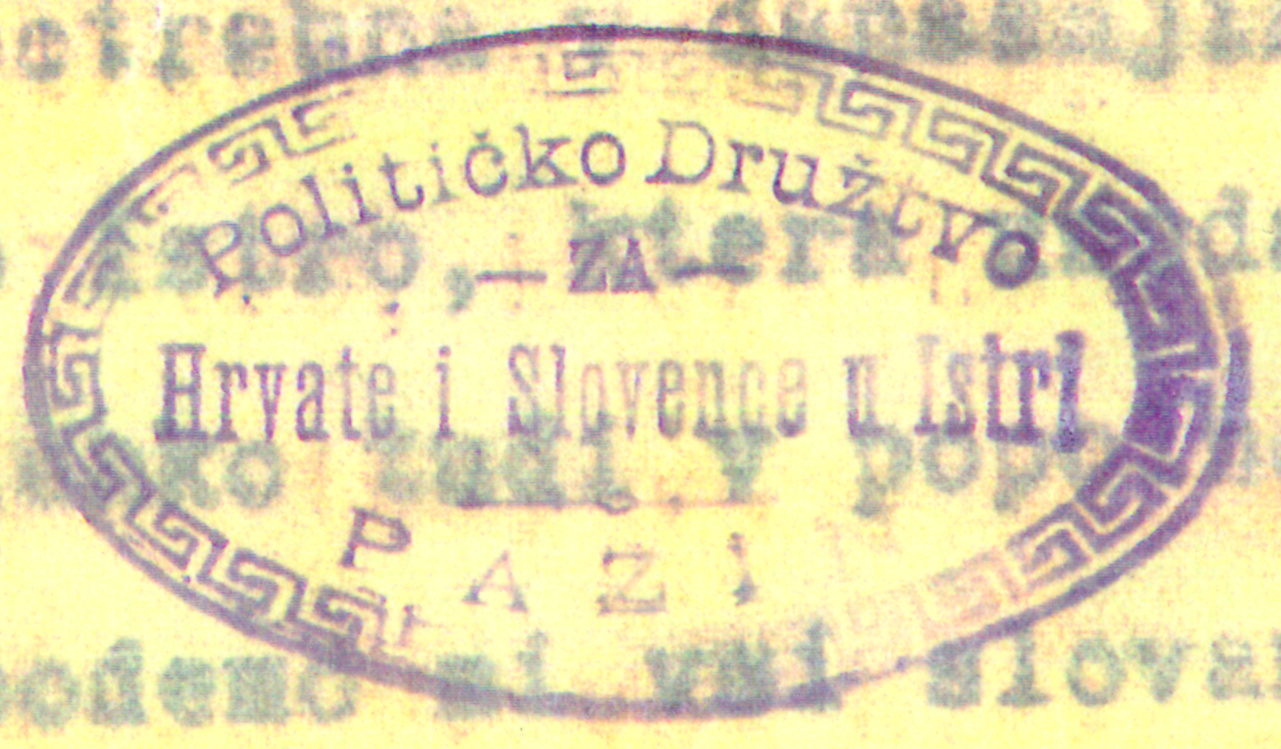 The Political Association for Croats and Slovenes in Istria was founded in Pazin (Croatia) in 1902, with the aim of awakening national awareness and defending national rights in all areas of public life. The newspaper Naša sloga became its official organ.
The Political Association for Croats and Slovenes in Istria was founded in Pazin (Croatia) in 1902, with the aim of awakening national awareness and defending national rights in all areas of public life. The newspaper Naša sloga became its official organ.
 The organ of the Yugoslav Social Democratic Party, founded in Ljubljana in 1896, which for a time also had offices in Trieste.
The organ of the Yugoslav Social Democratic Party, founded in Ljubljana in 1896, which for a time also had offices in Trieste.
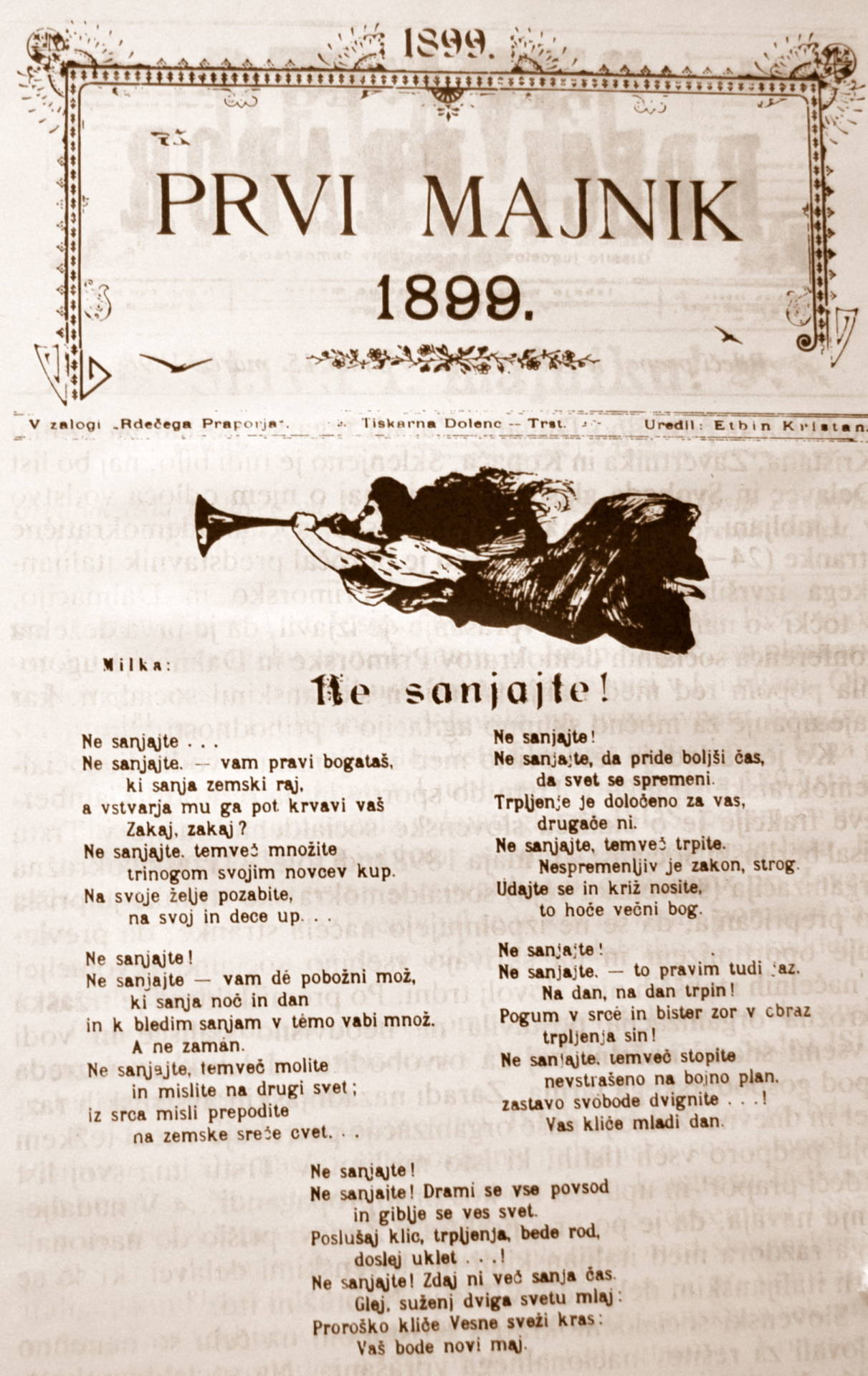 Handbill of the newspaper Rdeči prapor (“Red Flag”) for 1 May 1899.
Handbill of the newspaper Rdeči prapor (“Red Flag”) for 1 May 1899.
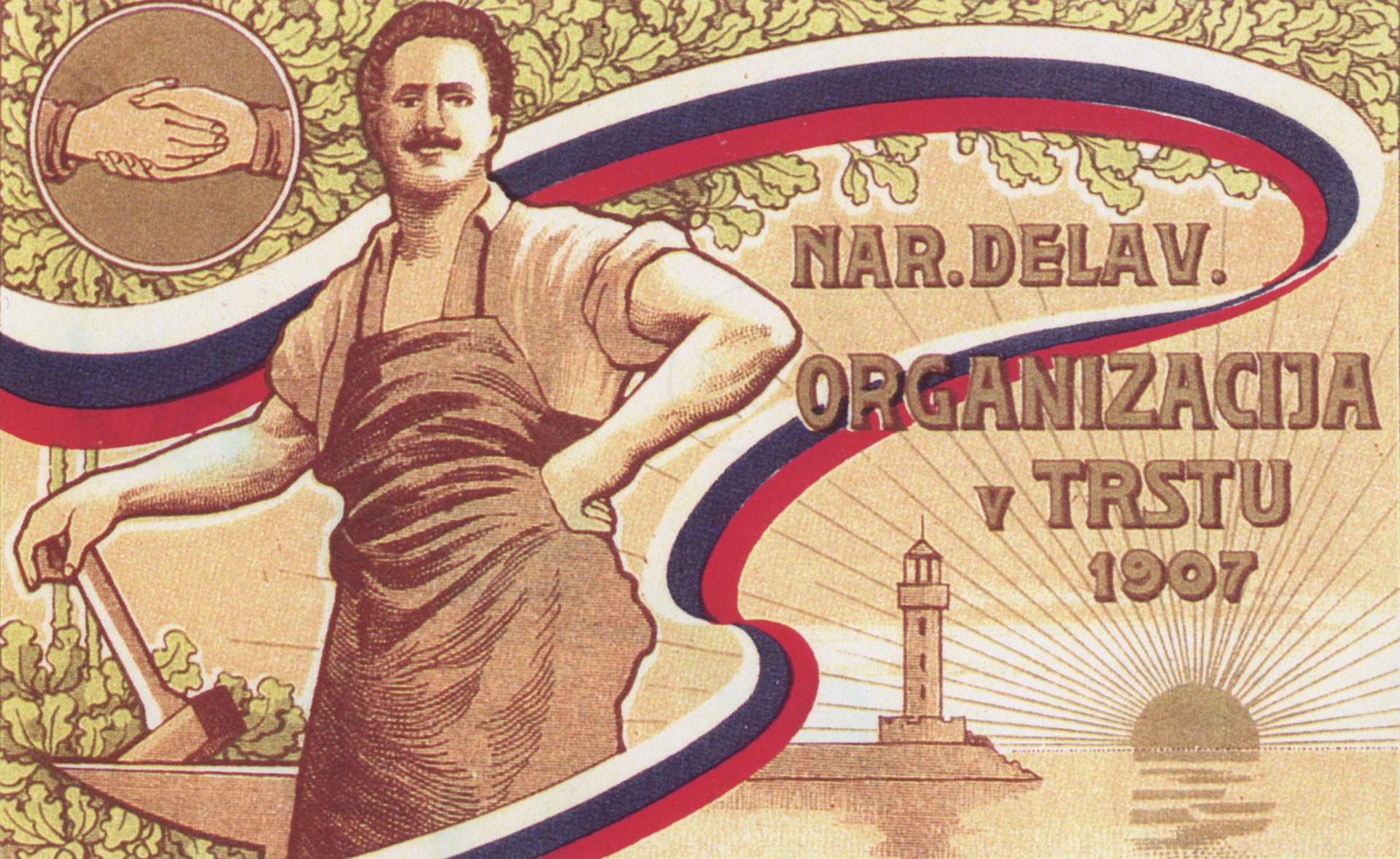 The National Workers’ Organisation (NDO) was founded in 1907 within the ambit of the political association Edinost. Its social programme had a national basis.
The National Workers’ Organisation (NDO) was founded in 1907 within the ambit of the political association Edinost. Its social programme had a national basis.
 The National Workers’ Organisation (NDO) was founded in 1907 within the ambit of the political association Edinost. Its social programme had a national basis.
The National Workers’ Organisation (NDO) was founded in 1907 within the ambit of the political association Edinost. Its social programme had a national basis.
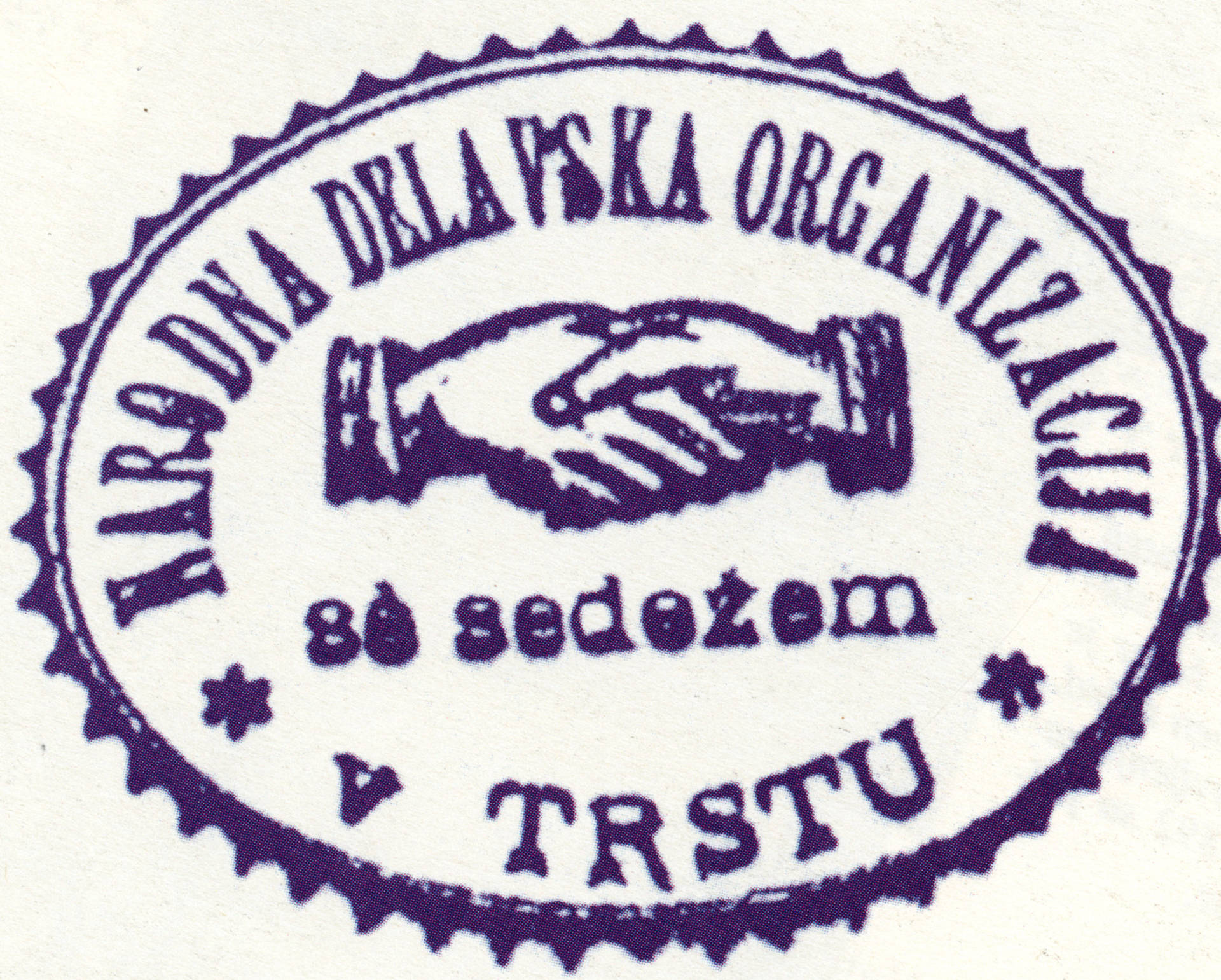 The National Workers’ Organisation (NDO) was founded in 1907 within the ambit of the political association Edinost. Its social programme had a national basis.
The National Workers’ Organisation (NDO) was founded in 1907 within the ambit of the political association Edinost. Its social programme had a national basis.
